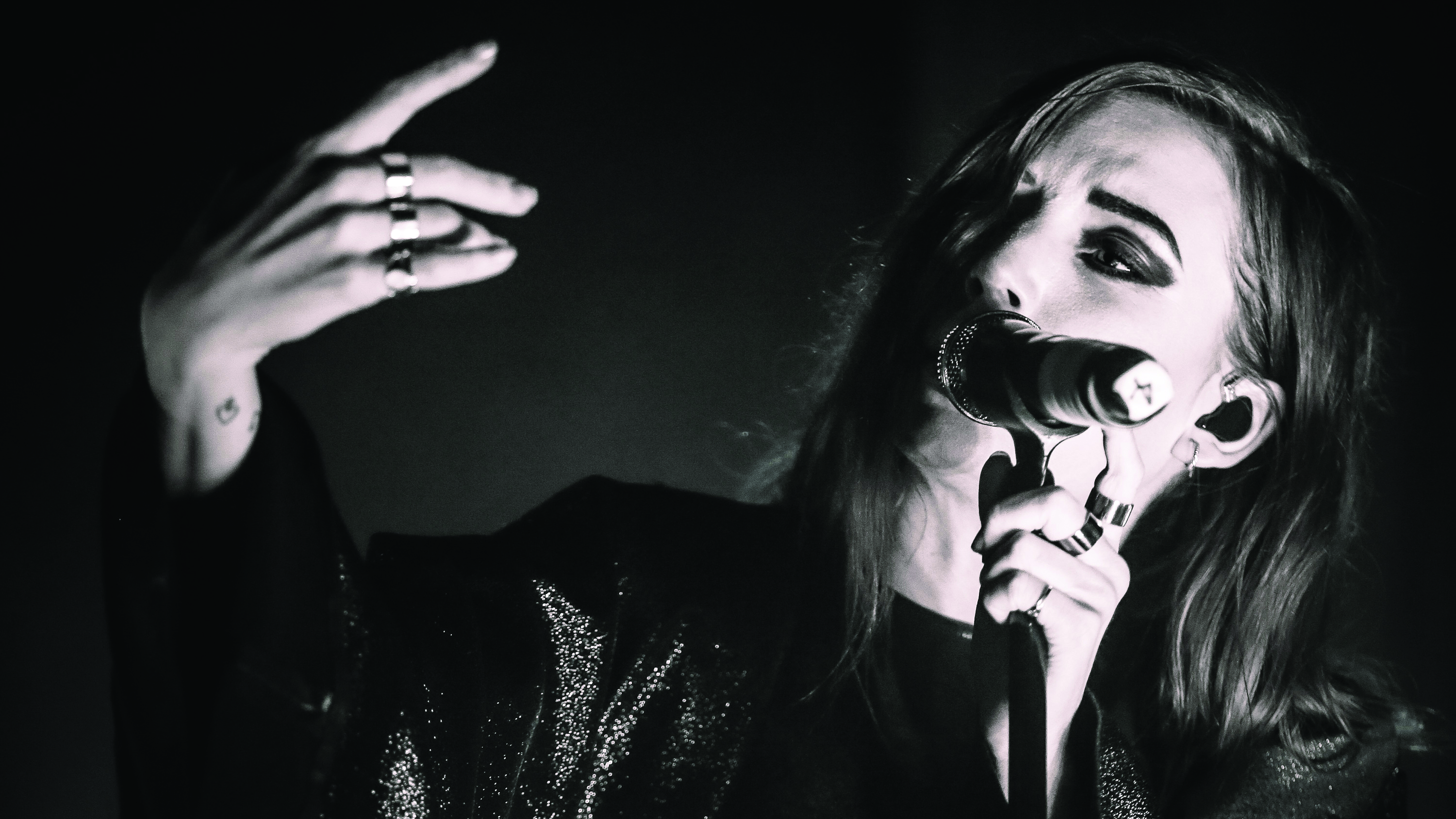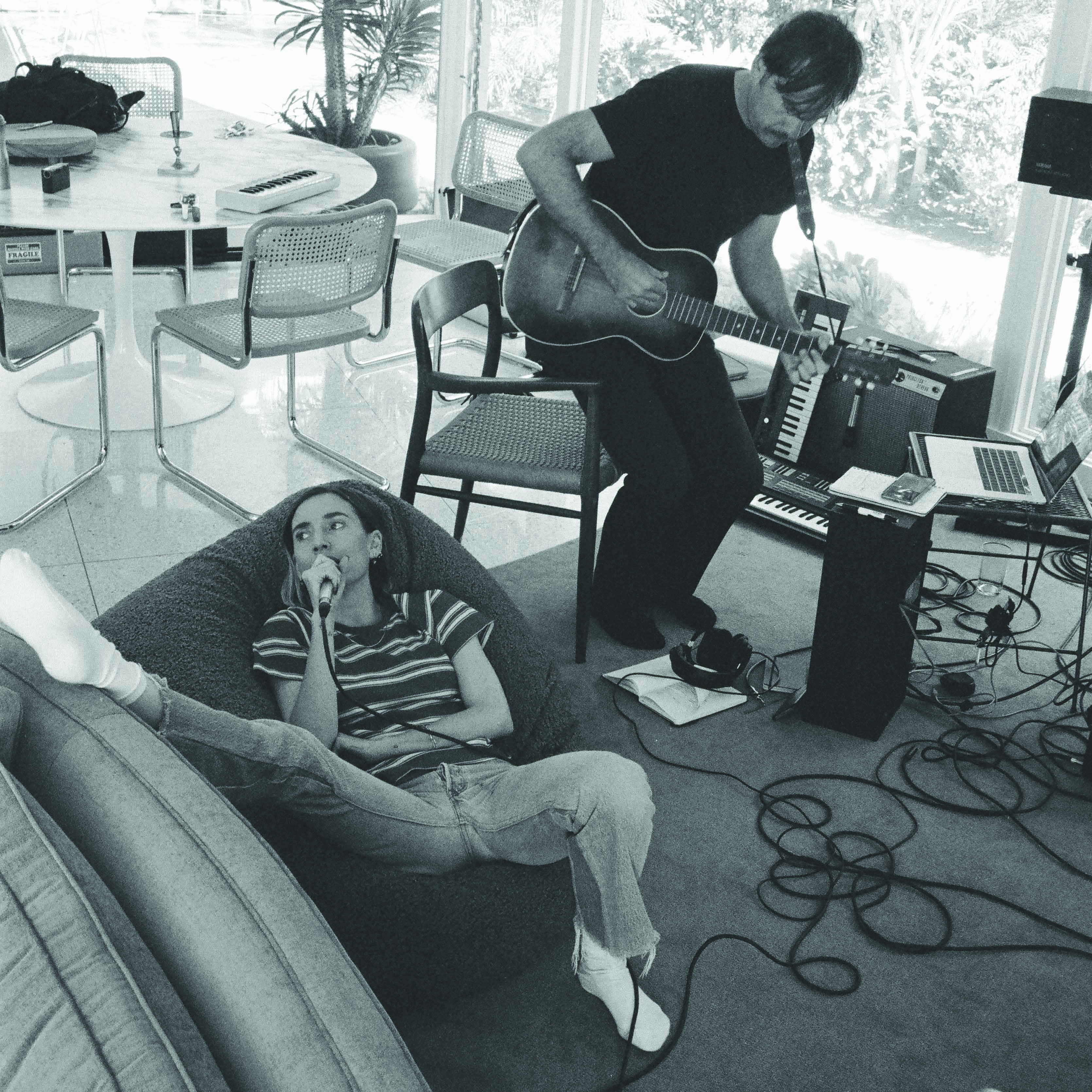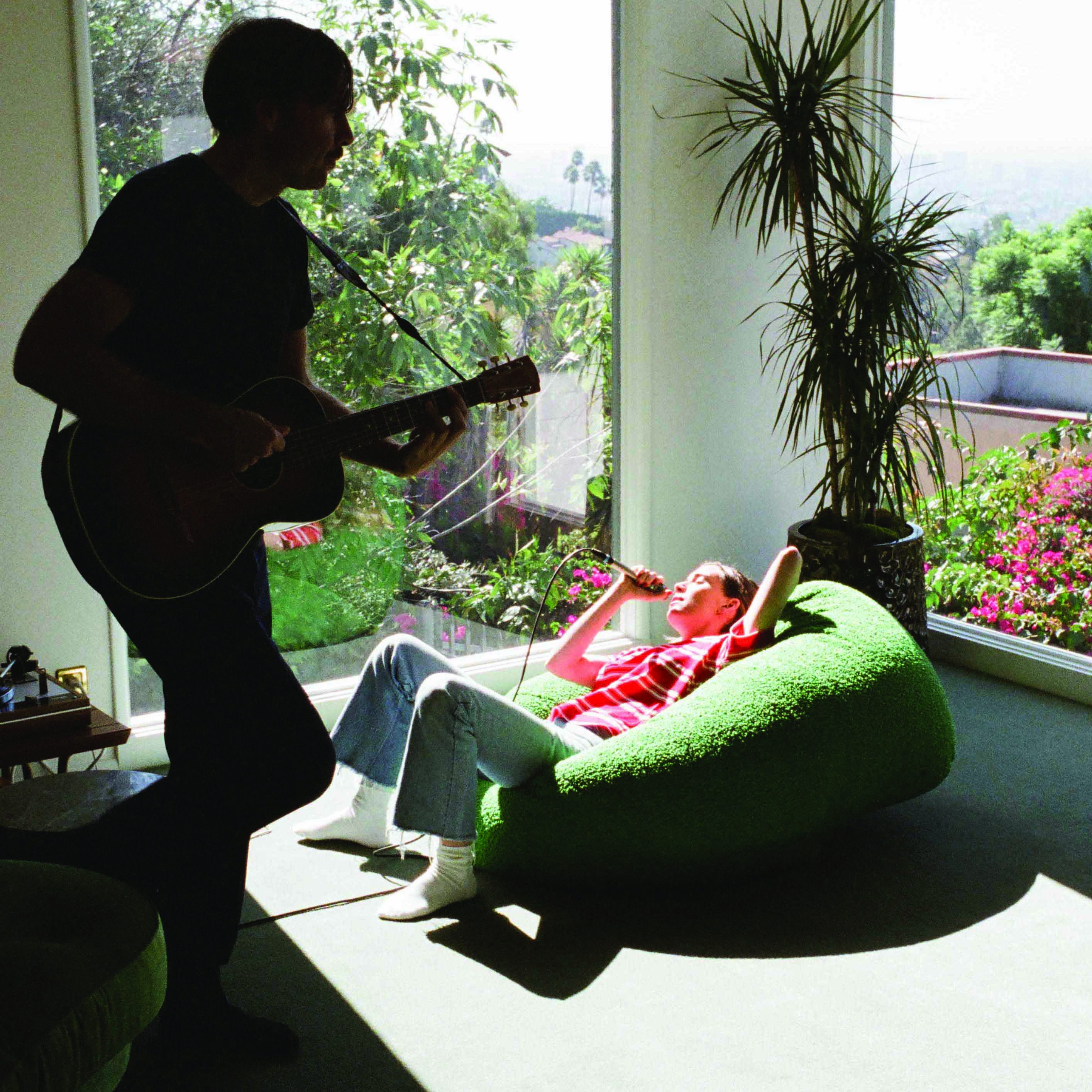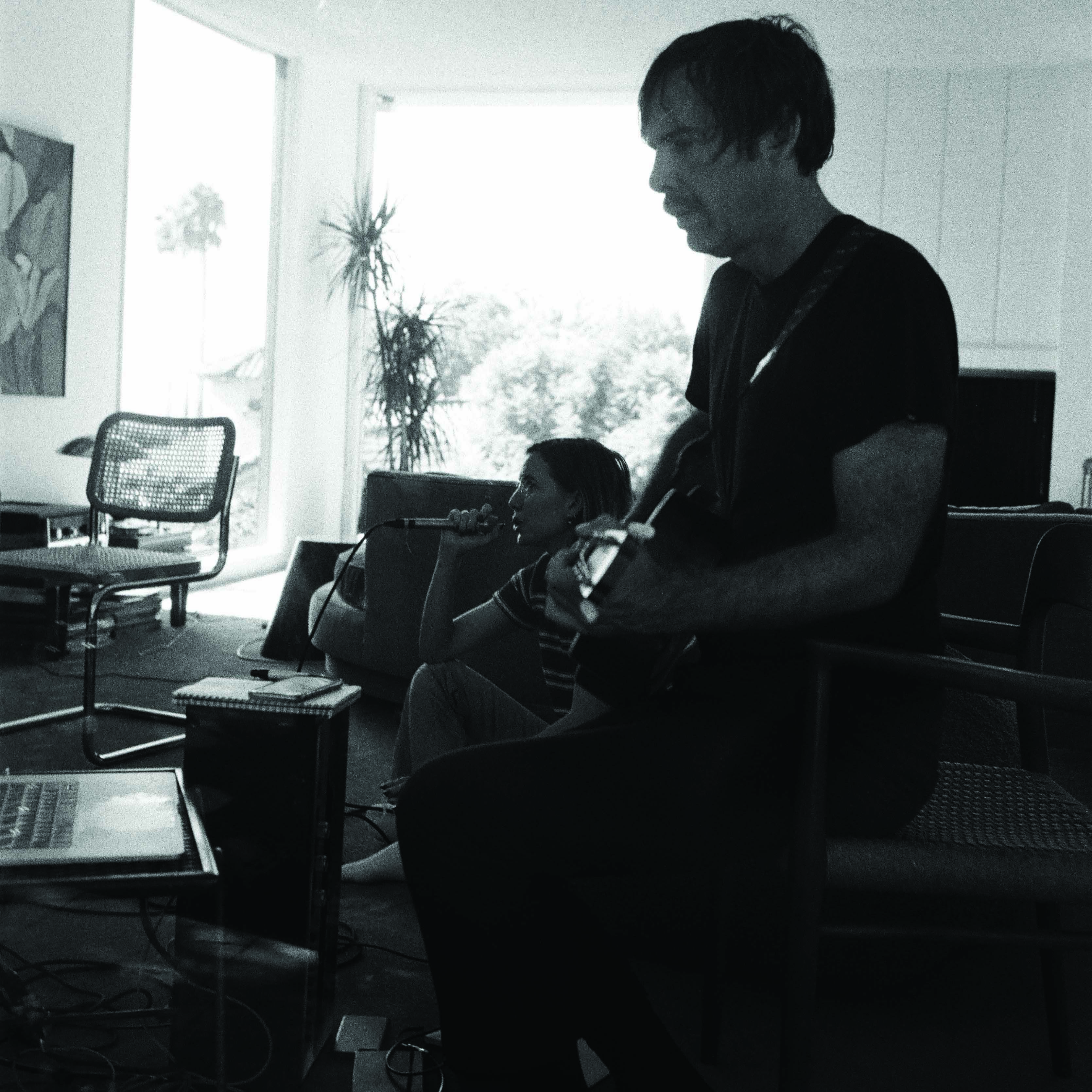Lykke Li and Björn Yttling on recording in ABBA's old studio: "It looks like a winter cabin from a Roger Moore James Bond movie. What more do you need to make great music?"
The Swedish pop phenom shares her vision for the unabashedly emotional album Eyeye

Want all the hottest music and gear news, reviews, deals, features and more, direct to your inbox? Sign up here.
You are now subscribed
Your newsletter sign-up was successful
On paper, Lykke Li’s childhood sounds like one long musical adventure. Born in Ystad, Sweden – the setting, of course, for Henning Mankell’s Wallander books – Li Lykke Timotej Zachrisson is the daughter of Johan Zachrisson, guitarist with well-known Swedish punk/ska/reggae band, Dag Vag.
From Sweden, Zachrisson took his family and his studio to an isolated mountain top in Portugal, then to Lisbon, then India, Nepal and Morocco. Recording with local musicians, experimenting with strange new instruments. Surrounding young Lykke’s world with sound.
“As you said, this kind of childhood sounds great on paper,” laughs Lykke. “But the reality of that kind of upbringing is 11 different schools, very few friends, struggling to learn new languages... and a real sense of detachment. Anxiety and insomnia. Moving around like that takes away your feeling of safety. “As a child, I was lost, but it was music that saved me...”
Her 2008 debut album, Youth Novels – a sprightly collection of dreamy synth-pop tunes, decorated with indie/folk-ish hooks – was an immediate hit in Sweden and far beyond, leading to festival appearances at Glastonbury, Coachella et al, not to mention a string of high-profile collaborations.
“The more songs I recorded, the more confident I felt with lyrics. I wasn’t scared about diving into the craziness of life or touching on darker subjects. Writing about real heavy shit. On the new album, Eyeye, the lyrics became a sort of diary. I would arrive at the studio and try to channel the daily madness that we all have to go through.”

Like all your previous albums, Eyeye was produced and co-written with Björn Yttling of Peter, Björn and John. (Remember the uber-catchy 2006 single, Young Folks?) In the past, you always worked in Yttling’s Stockholm studio, but most of the early work for this one was done at your LA apartment, with just a laptop, a couple of mics and a smattering of synths and guitars. Was COVID to blame?
LL: “Of course! Travel became difficult, so we had to decide where it would be easiest to base ourselves. My home is LA, I have a child with an American man, so my apartment seemed the obvious choice. And, in many ways, I think it helped the sound of this album. I liked the idea of making an album that was just me and Björn... going back to something simpler. Not worrying about experimentation or how many days we’ve been in the studio. Just writing songs and being happy when we found something that worked.
Want all the hottest music and gear news, reviews, deals, features and more, direct to your inbox? Sign up here.
It was just me and Björn in my living room, listening to stuff, making jokes, watching TV, staying up late and trying to work out where a song needed to go
“Yes, in that past, we did a lot of work at Björn’s place, but there were also times when the record label put us in big, professional studios, which adds a level of pressure that I’m not comfortable with. For the first album, we were taken to New York and we had 10 days to finish everything. I could see the clock ticking on the wall and I knew that, at some point, I would have to do my vocals. That was my first album and, understandably, I was quite scared. I left it until the very last moment and it was hell for me.
“Sometimes, when I listen to that album, it still makes me smile. I wanted to sound powerful and full of life experience. I wanted my vocals to carry all the emotion and the pain that I felt inside. Ha ha! I sound like a young girl… because I was a young girl. That was my voice.
“Because of my upbringing, I do suffer with anxiety and a very extreme nervousness. I like the idea of working hard and being under pressure, but I don’t always find it easy to cope with that pressure. That’s why this album felt so relaxed. It was just me and Björn in my living room, listening to stuff, making jokes, watching TV, staying up late and trying to work out where a song needed to go. Almost as if we were recording demos.”
I’ve read somewhere that Björn likes to work on Pro Tools.
LL: “That’s correct. It’s a platform that feels a little bit like a tape machine. Obviously, it is digital, but it doesn’t always push you to sound digital. On the first album, I remember that he put everything through tape echoes to give the music a bit more of an analogue feel.”
Have you got a studio set-up at home?
LL: “Not really. I have a computer, some keyboards and a piano, but programming is not something my brain copes with. It’s not how my brain works. There have been times when I’ve forced myself to sit down with Logic and Pro Tools and said, ‘OK, I really need to learn this shit’, but I never get very far. You have to pick your battles, and I’m far more interested in ideas and words.
I’m not a passive viewer when it comes to time spent in the studio. Every second that Björn is sitting in front of his computer screen, I’m right there by his side
“As a solo artist, I decided to take charge of every aspect of my music. The writing, the image, the press pictures, the lighting for the live show, the visuals, the choreography, the videos. Even something as small as whether I need to bleach my eyebrows or not, in order to match a certain outfit.
“Don’t get me wrong! I’m not a passive viewer when it comes to time spent in the studio. Every second that Björn is sitting in front of his computer screen, I’m right there by his side. ‘What are you doing? Can we move this to the right? What’s happening with that bassline?’ Screaming and complaining. Interfering in every note and sound. I honestly feel so sorry for anyone who has to work with me! Having to deal with my shit for eight or nine months. That’s hard work!”

Despite your childhood being difficult, did being surrounded by music in that way automatically push you towards the recording studio?
LL: “I honestly think that any child, irrespective of what their parents do, is fascinated by music. You only have to look at a child’s face when they’re singing... music makes you feel alive, it makes you happy. It’s strange, but when I think back to those earliest years, it’s not my dad and the studio that leap into my memories, it’s my Walkman and the two cassettes I owned: Michael Jackson’s Dangerous and Madonna’s Immaculate Collection.
“When you feel alone as a child, you also feel that no one understands you. Even though it might not be true, you think that you don’t matter in this world. I quickly realised that putting on my headphones transported me from my suffering. Music made me feel loved and understood. It made me feel that I mattered. It was a connection that seemed far deeper and more spiritual than anything else I’d experienced in my young life.”
Were there always lots of different instruments lying around the house, when you were growing up?
LL: “Every house had a piano in the living room and, on birthdays, Dad would walk into the room singing with his guitar. I remember walking into Dad’s studio and seeing the big analogue delay machines… feeling their warmth. I remember seeing the joy of a recording session during the period when Dad was making a lot of dub reggae. I remember him giving me my first 8-track and a little drum machine. Me picking chords out on the piano.
I remember walking into Dad’s studio and seeing the big analogue delay machines… feeling their warmth
“But I can also remember this crushing sense of heartbreak and loneliness that was always inside me; way before I really understood what it was. And even when I was older, those feelings never left me. At 16 and 17, I would go out with my friends, but would always end up walking home early thinking, ‘This world sucks!’.
“It was on one of those nights, with the music coming through my headphones – after the Walkman, I got a Discman, and the first CD I bought was Lauryn Hill’s Miseducation album – that I first glimpsed the absolute power of music. Music could take me away from all the pain.”
Your live shows have become something that makes it look like some sort of futuristic musical theatre.
“Going on tour with just a backing track was never an option for me. I wanted people to be able to come and see something that was being played by people on stage. If you’re looking for communion between music and the audience, that music has to come to life. When I’m on stage, it feels like an addiction; a love addiction.”
Lykke Li’s long-term producer, Björn Yttling
How did you and Lykke’s working relationship first come about?
BY: “A friend of mine – who also happened to be an A&R man – heard some of her stuff on Myspace in 2005 and thought that we might enjoy working together. She came along to my old studio in Stockholm and played a few songs, but we mostly just talked about music and stuff. I can remember her telling me that she liked Erykah Badu and me thinking, ‘Hmm, that doesn’t sound right for her’.
”A few days later, I made her a CD of music that I wanted her to listen to: Dr. John, Suicide, Nick Drake, LCD Soundsystem. I’m not sure that she was too fond of Dr. John, but I got the feeling that she liked where Alan Vega and Suicide were coming from. This idea that you can have melodies coming from the leftfield; melodies that aren’t like all the usual pop shit.”
What was your set-up at the time?
BY: “I had a couple of rooms, but you couldn’t really call them a studio. It was all low ceilings and not much room to move around. The DIY approach. I had a Mac with an M-Audio soundcard, lots of analogue tape echoes, my guitar and a few weird keyboards. When we recorded Lykke’s first album, I remember having the tape echoes running in parallel with absolutely everything. Even though I couldn’t afford a proper analogue studio, I did my best to try and make my set-up sound like one.
Even though I couldn’t afford a proper analogue studio, I did my best to try and make my set-up sound like one
“I was working on Pro Tools at the time, but I’d only just switched over from Logic. It was that era when Logic was kind of crappy and everything felt illogical. OK, so I have to drag this from here and put that there and create a new track for this bit. Pro Tools seemed more like a straightforward tape machine.”
Would you have preferred to have been working in a fully analogue studio?
BY: “Of course, but you have to be practical. I wasn’t against working with computers; I could see the potential of working inside the box. You had so much more control over the sound. You could fuck things up a lot easier. But let’s not forget how bad some of the plugins were back then. They sounded shit and they were always crashing. If you had a real Moog, you would obviously use it because the software versions were a poor imitation.
“These days, things are very different; the software is fantastic. Luckily, the success I’ve had as a producer and with Peter, Bjorn and John means that I was able to buy a lot of analogue equipment when it wasn’t so expensive. I have played around with a few of the softsynths, but I always end up coming back to the real thing.”

The way Lykke described the early sessions for this new album was... casual and unstructured, to say the least.
BY: “Unstructured is a good way to describe them. We had a basic set-up at her place in LA and did our best to capture the songs as they were happening. We didn’t worry too much if there was a bit of leakage from the TV next door or if something was slightly out of time.
“We were after a particular vibe, rather than a perfect production. All we had was my guitar, a bass, the little red Yamaha Reface YC and a bunch of effects pedals. The only time we really messed around with the sound was if the guitars felt too small and personal. We used the multi-effects to make them sound less folky. I wasn’t involved in the mastering, but from what I heard, they used the same approach. Nothing too complex.”
As a producer, you’ve also worked with bands like Primal Scream, Robyn, David Lynch and Franz Ferdinand. Which do you see as your day job: musician or producer?
BY: “First of all I was a musician. Surely, that’s how we all start. You learn an instrument, then you join a band, then you get the chance to go into the studio and see how all the technical stuff works.
That was definitely the philosophy on the new Lykke album: we found some sounds that we liked and we used those sounds for the whole album
“I’m one of those people who is naturally curious, so I would look over the producer’s shoulder and ask questions. Then, I suddenly found that the producers were asking me questions: ‘Do you think we need more reverb on the vocals?’ I remember thinking, ‘Hang on, what are we paying you for? Isn’t that your job?’ So, I wondered if maybe I could be a producer, too.
“At first, I assumed it would be a regulated job with lots of rules, but I soon realised that most of the time, you make it up as you go along. Just make sure you keep it simple.
“Think about the great sounds from the past, like Motown, Philly Soul and Phil Spector. They didn’t change the snare for every song. They didn’t ask the guitarist to try a whole bunch of new effects. That was definitely the philosophy on the new Lykke album: we found some sounds that we liked and we used those sounds for the whole album. I think it gives a project more focus.”
Is it true your studio is the former Polar Studio, set up by Björn Ulvaeus and Benny Andersson, where Abba recorded classic singles like Voulez-Vous and Chiquitita?
BY: “Yeah, crazy, isn’t it? It was set up in the ’70s and it has a very ’70s sound, which is what I love. If you want to get a Fleetwood Mac drum sound, it’s perfect. Plus, it looks like a winter cabin from a Roger Moore James Bond movie. What more do you need to make great music?”


Computer Music magazine is the world’s best selling publication dedicated solely to making great music with your Mac or PC computer. Each issue it brings its lucky readers the best in cutting-edge tutorials, need-to-know, expert software reviews and even all the tools you actually need to make great music today, courtesy of our legendary CM Plugin Suite.
